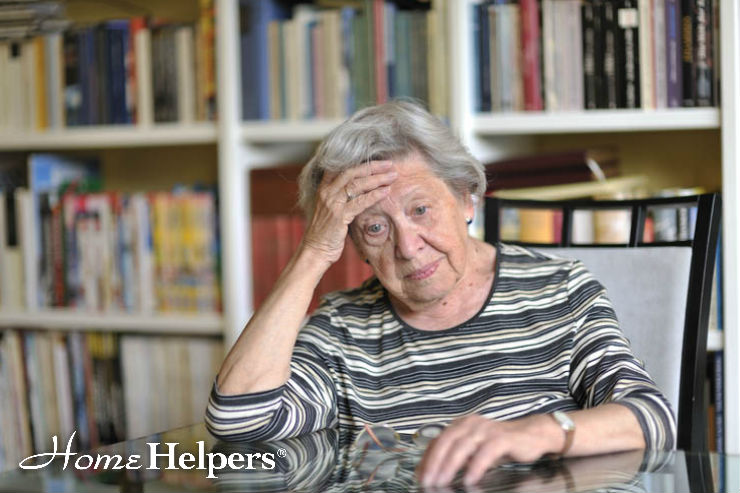We all get a little anxious at times. That just comes with being human! But what about senior adults? Do they deal with more anxiety than usual? How do you help them work through their anxiety? Read on.
What Is Anxiety?
True anxiety disorders can be very debilitating. There’s quite a big difference between getting nervous about something vs. being unable to do normal tasks.
For seniors, anxiety can worsen as they age or realize how challenging it can be to do normal everyday activities. If they are afraid to leave the house, be in social settings or have extreme reactions of fear about minor things, then it is very possible they are suffering from anxiety that needs to be treated.
What are the Symptoms of Anxiety in the Elderly?
Anxiety has several sub-categories. Each type of anxiety could manifest itself in different ways, with individual symptoms. Here are a few types of anxiety you should know about:
Phobia: Phobias are extreme reactions that seem irrational to someone who isn’t dealing with anxiety. It causes debilitating fear of doing things, leaving the house, driving, etc. It can also cause sudden fears of things like thunderstorms or loud noise.
Panic Disorder: Panic disorders can cause extreme fear or feelings of terror that come on incredibly quickly. Symptoms of a panic attack are wide but include shortness of breath, chest pain, dizziness, or being afraid of death.
Generalized Anxiety Disorder: This type of anxiety is more long-lasting and causes your senior loved one to have a very negative outlook on life. They often become pessimistic and become convinced that the worst-case scenario is about to happen, with no reasoning behind it. They basically stress themselves out fearing small everyday tasks. Symptoms can include muscle tension, extreme worry about small things, headaches and insomnia.
PTSD: Anyone can get PTSD, but for seniors, it can be even worse. Perhaps they served in a war that causes them to have flashbacks or suffer from nightmares. Traumatic events cause PTSD but can be successfully treated with the right therapeutic approach. It’s common to have depression or startle easily.
Will Anxiety Get Worse with Age?
Anxiety can be lessened with age, but that really depends on the person. Seniors may develop anxiety due to their fear of things like losing a spouse, paying for long-term care, being worried about their health or becoming a burden to family members.
Treatment for Anxiety in Seniors
Anxiety is very treatable. It can have a huge impact on quality of life and should be handled right away. In seniors, it can increase their risk of death if it is not treated. Treatment will most likely involve psychotherapy before trying medications. There are many medicines for anxiety, but their side effects can be problematic in seniors, so they are used as a lasts resort in most cases.
If you have noticed symptoms of anxiety in the senior adult in your life, please contact us today! We’re here to help!
Home Helpers of Cherry Hill is a locally-owned, trusted home health care agency and offers quality, compassionate senior in-home care services including home care assistance, personal care, companion care, respite care, 24-hour care and live-in care, Alzheimer's & dementia care, Parkinson's care, post-operative home care as well as homemaker services in Audubon, Barrington, Berlin, Berlin Township, Cherry Hill, Clementon, Collingswood, Evesham Township, Gibbsboro, Haddon Heights, Haddon Township, Haddonfield, Hainesport, Lawnside, Lindenwold, Lumberton, Marlton, Medford, Medford Lakes, Merchantville, Oaklyn, Pemberton, Pennsauken, Pine Valley, Tavistock, and Voorhees, New Jersey.
Legal Disclaimer
This blog provides general information and discussions about medicine, health, and related subjects. The words and other content provided in this blog, and in any linked materials, are not intended and should not be construed as medical advice. If the reader or any other person has a medical concern, he or she should consult with an appropriately-licensed physician or other healthcare workers.
Never disregard professional medical advice or delay in seeking it because of something you have read on this blog or in any linked materials. If you think you may have a medical emergency, call your doctor or 911 immediately.
The views expressed on this blog and website have no relation to those of any academic, hospital, practice or other institution with which may have been mentioned or linked to in the article.

